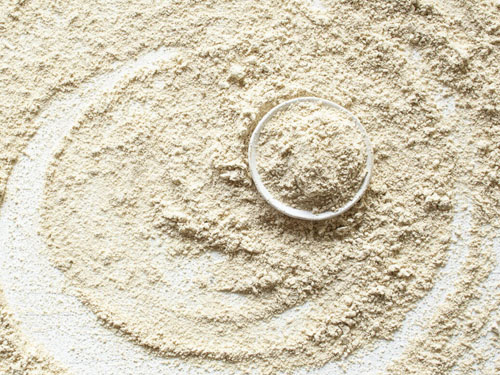Almost three centuries have passed since Jonathan Swift, author of Gulliver’s Travels, coined the phrase: “Every man desires to live long, but no man wishes to be old.”
The language might be outdated now but, in today’s context of an ageing population, the sentiment is more relevant than ever. People everywhere are living longer; the number of people aged 80 or older is expected to triple between 2020 and 2050 to reach 426 million.1
As society ages, increased longevity is no longer a desire but a reality … and this is changing our relationship with ageing.
The emphasis is shifting from extending our lifespans to lengthening our healthspans or, in other words, improving our quality of life as we age.
This was one of the key findings of Roland Berger’s fifth annual health survey, which explored consumer attitudes to longevity.2
More than 70% of respondents said they would choose a shorter lifespan and remain well rather than living for longer with deteriorating health. This shows that consumers put more priority on the quality of their life as opposed to its length.
There is clearly a huge — and growing — market opportunity for nutrition and treatments that can support healthy ageing … but engaging consumers in this space is not straightforward.
According to the survey, many are sceptical about innovative solutions; they much prefer natural or traditional methods compared with novel approaches to achieve a longer healthy life.

Players in the longevity nutrition space must therefore provide convincing evidence of the success of their offerings if they are to win the trust of consumers.
Spermidine: a proven strategy
One strategy that’s built on robust science is the use of spermidine — a naturally occurring polyamine compound that has been investigated in more than 13,000 studies worldwide.
The name comes from the fact that it was first detected in male seminal fluid but, in fact, spermidine is present in all the body’s cells and is associated with healthy cell maintenance.
As the ageing body is more susceptible to oxidative stress and inflammation, spermidine plays a valuable role by protecting cells from age-related damage.
A story of substance
“Scientists around the world are fascinated by spermidine because of its tremendous health potential. It’s found in every living organism — and every cell — for a reason; it helps to keep them healthy by slowing down the ageing process,” says Dr Carola Buller, Nutritional Solutions Product Manager at GoodMills Innovation.
“There is a lot of nutritional hype in the longevity space, but spermidine’s story is one of substance. As a compound, it has been extensively studied and we now understand the unique role that spermidine plays in healthy ageing,” she adds.
An endogenous autophagy activator
Spermidine’s potential as a longevity ingredient lies in its ability to stimulate a physiological process called autophagy.
Scientists have long known that one of the most influential processes in healthy ageing is autophagy; that is, the cleaning or repair mechanism that’s responsible for cell regeneration in our bodies.
Essentially, it’s a very effective recycling process: cell components that are not necessary are broken down and the degradation products serve as building blocks for essential molecules and energy production.
In this way, autophagy supports immune function, stem cell and health maintenance, genome integrity, lipid balance and various secretory processes. Put simply, autophagy helps to keep our cells young.
Autophagy can be activated in several ways, including physical activity and calorie restriction. Spermidine has the very rare ability to mimic these efforts and has a positive effect on autophagy.
Clinical evidence of ageing effects
The life-prolonging effects of spermidine have not only been demonstrated in cell cultures and animal models, but also in a large-scale epidemiological study.3
The food habits of more than 800 people were recorded during a 20-year period and analysed by an international team of researchers.
They found that those who consumed higher levels of dietary spermidine were at a lower risk of mortality during the observation period. They calculated the survival benefit of spermidine to be approximately 5 years.

As well as prolonging lifespan, spermidine appears to have beneficial effects on age-related neurological disorders and the risk of age-related cognitive impairment.
In 2021, a multicentric double-blind preliminary study investigated the effect of oral spermidine supplementation on dementia in 85 seniors in six nursing homes.4
The results demonstrated a clear correlation between the intake of spermidine and improved cognitive performance — to the extent that the effect exceeded what could be achieved with medication.
The common thread in all these scientific studies is that keeping dietary spermidine levels high as we age is key.
Spermidine levels have been found to be considerably higher in adults younger than of 50 than 60–80 year olds.5 This is because, as the body ages, its production of spermidine decreases, which is why the consumption of dietary spermidine becomes more necessary.
Sources of spermidine
Spermidine can be found in a variety of foods, including cheese, pumpkin seeds, mushrooms, peas and soybeans. Wheatgerm and mature cheddar cheese are two of the richest sources, providing 243 and 199 mg/kg of spermidine, respectively.
GoodMills Innovation’s SpermidineEvo is a premium wheatgerm concentrate with a very high content of natural spermidine (more than 500 mg/kg).
This is thanks to careful selection of high quality wheatgerm as the raw material and sophisticated milling processes to separate the germ from the bran to obtain the most functional fractions of the wheat kernel.
SpermidineEvo’s high spermidine concentration and purity make it the ideal ingredient choice for manufacturers seeking to bring healthy ageing solutions to market that are both innovative and effective.
Five minutes with Dr Buller
Wishing to delve a little deeper, Dr Kevin Robinson (KSR) recently caught up with Dr Carola Buller to find our more.
KSR: What nutraceutical applications can SpermidineEvo be used in?
CB: SpermidineEvo can be supplied as wheat germ granules or as a micronised powder. This enables its use in a broad range of nutraceutical applications, from food supplement capsules, tablets, sachets and gummies to instant powder drinks, powdered meal replacements, muesli and protein bars, smoothies and wheat germ milk.
KSR: Is SpermidineEvo classed as a novel food?
CB: No, it’s not, but it does offer manufacturers a high-potent source of spermidine that does not require regulation under the EU Novel Foods framework. It is produced by purely physical methods that protect its nutritional profile and intrinsic functionality.
KSR: How is SpermidineEvo produced??
CB: A SpermidineEvo is produced from wheat germ, which is the most nutritious component of the wheat kernel.
Drawing on the wheatgerm expertise that exists within our company — Europe’s largest milling group — a gentle thermal treatment stabilises the raw germ and it’s then optionally micronised into a fine powder.
This yields a wheat germ concentrate with a specified and guaranteed content of 500 mg of spermidine per kg, which is higher than standard.
KSR: What makes SpermidineEvo healthy?
CB: Thanks to its high spermidine content, SpermidineEvo is predestined to be used in the field of antiageing. Buzzwords are autophagy promotion and cell health maintenance.
As well as being a potent source of spermidine, SpermidineEvo is rich in essential nutrients such as vitamins E, B1, B2 and B6, folic acid, iron, potassium, magnesium, phosphorus and zinc. The high natural content of E and B vitamins protects cells from oxidative stress.
References
- www.who.int/news-room/fact-sheets/detail/ageing-and-health.
- www.rolandberger.com/en/Insights/Publications/Future-of-health-5-A-long-and-healthy-life.html.
- S. Kiechl, et al., “Higher Spermidine Intake is Linked to Lower Mortality: A Prospective Population-Based Study,” Am. J. Clin. Nutr. 108(2), 371–380 (2018).
- T. Pekar, et al., “The Positive Effect of Spermidine in Older Adults Suffering from Dementia: First Results of a 3-Month Trial,” Wien. Klin. Wochenschr. 133(9–10), 484–491 (2021).
- S. Pucciarelli, et al., “Spermidine and Spermine are Enriched in Whole Blood of Nona/Centenarians,” Rejuvenation Res. 15(6), 590–595 (2012).
